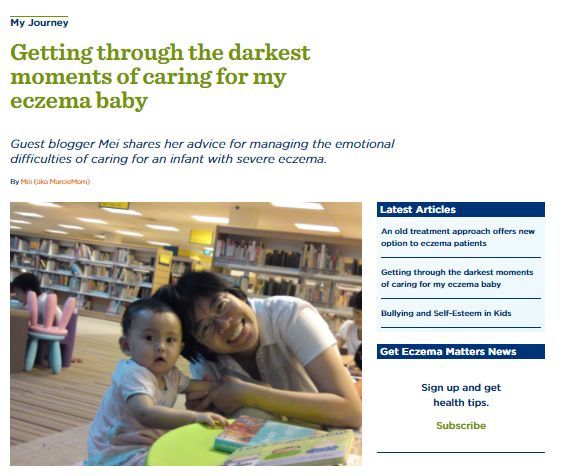The healthcare landscape is transforming. Here are six considerations to help your talent during restructuring, downsizing, and other transitions.
Managed Healthcare Executive – Health Management



Tag Archives: Support
Oct 14, Support The Teal Pumpkin Project To Raise Food Allergy Awareness
Halloween is a fun time for families. Dressing up, having parties and trick-or-treating. Children particularly love trick or treating. But if your child suffers from allergies it can become less fun. A great project has been started by FARE (Food Allergy Research and Education). It is called The Teal Pumpkin Project. It is encouraging households to give non-food items out to trick-or-treaters. The participating households put a teal painted pumpkin their house, as well as putting up a poster, to tell trick-or-treaters that they are only giving out non-food treats. I think this project is a great idea. It helps to raise awareness of food allergies, and allows children suffering from them to participate in a fun family tradition. It would be great if communities could get involved and raise awareness of this project. You can find out more below
Eczema Blog
Five ways healthcare executives can better support physicians
A survey explores how physicians perceive their role in the healthcare system, and the findings aren’t good.
Managed Healthcare Executive – Health Management
Data support panfacial aesthetics approach
The HARMONY study puts objective data behind the aesthetic and psychological improvements delivered by a panfacial approach to facial rejuvenation. It’s also the first study to use video analysis, and online photo ratings from a representative sample of Americans, as outcome measures.
Dermatology Times – Dermatology
Data support panfacial aesthetics approach
The HARMONY study puts objective data behind the aesthetic and psychological improvements delivered by a panfacial approach to facial rejuvenation. It’s also the first study to use video analysis, and online photo ratings from a representative sample of Americans, as outcome measures.
Dermatology Times – Dermatology
Online Doctor v Patient-to-patient Support
Do people seek information from HCPs online or do they prefer online support from fellow patients?
Over recent years there has been a steady increase in the availability of patient-focused websites offering health information and support across a wide range of conditions.
A survey of c7,000 patients carried out by the Nuffield Trust, found that 50% of people in the UK self-diagnose online long before they make a doctor’s appointment.

When it comes to discussion around their condition, it’s interesting to see where patients go online. Do they seek information from HCPs online or do they prefer online support and personal experience-based information from fellow patients?
National Eczema Association – Raising Awareness and Providing Support
For those of you who like to read the journeys of other eczema sufferers, do check out the National Eczema Association website which is a great resource. My journey “Getting through the Darkest Moments..” has been published on NEA’s website, and there are several other journeys shared. Do read them!
Manage your health with Patient support Programmes
For those living with chronic health conditions, self-management is crucial for managing and controlling symptoms day to day. Protecting your own health is a responsibility that can require some help and guidance to ensure you pursue the right treatment for you. So what are the ways in which you can better manage your condition yourself?
 talkhealth have developed a series of programmes to enable you to take an active role in managing your health. Our Patient Support Programmes (PSPs) offer you the chance to receive free online information, support and advice that it is specific to your condition. While on the programme you will receive an email once a week for 3 to 6 months (dependant on the programme you are on) which will provide you with a link to new downloadable information such as hints and tips, lifestyle advice and up to date information from experts. The information we have created for this programme has been designed to enable you to better manage your condition and symptoms more effectively as well as improving your quality of life.
talkhealth have developed a series of programmes to enable you to take an active role in managing your health. Our Patient Support Programmes (PSPs) offer you the chance to receive free online information, support and advice that it is specific to your condition. While on the programme you will receive an email once a week for 3 to 6 months (dependant on the programme you are on) which will provide you with a link to new downloadable information such as hints and tips, lifestyle advice and up to date information from experts. The information we have created for this programme has been designed to enable you to better manage your condition and symptoms more effectively as well as improving your quality of life.
We are currently giving members the opportunity to register their interest for the 11 patient support programmes we have planned so far:
Eczema…Rosacea…Wound Care…Continence…Sleep…Menopause…Acne…Arthritis…IBS…Psoriasis…Weight.
Fill in our short registration form today to ensure your place in our patient support programmes.
If you would like to take part in the arthritis patient support programme once it has launched, please do register your interest by filling out one of our quick expression of interest forms.
Nutrients to support fertility in women and men
If you and your partner are thinking of trying for a baby, by consuming the right amount and type nutrients, both of you may enhance your chances of conception as well as carrying a healthy pregnancy[1]. Read on for more information on the specific nutrients to support fertility that you should include in your diet and some expert advice from BMI Healthcare’s consultant David Chui at The Esperance Hospital.
Nutrients to support fertility in women
Folic acid
As one of the most well-known vitamins to take before and during pregnancy, folic acid is essential. It assists in the development and closing of your baby’s neural tube, which forms into the brain and spine[2]. It can help decrease the chance of your baby developing spina bifida; this is when a baby’s spine doesn’t form completely.
It is recommended that you supplement your diet with 400 micrograms of folic acid a day until your 12th week of pregnancy. In women who have had a previous child with neural tube defect, who suffer from diabetes or who take medication for epilepsy, a higher dose of 5mg/day is advised.
Where you can find folic acid:
- Dark green vegetables such as broccoli and spinach
- Lentils
- Avocado
- Lentils and nuts

Omega-3 fatty acids
This nutrient can help in a range of ways including, balancing your hormones and increasing your cervical mucus, which can help you conceive[3]. Also, because it increases the blood flow to the reproductive organs, it can improve the overall quality of your uterus. Plus, it’s easy to work into your diet.
Where you can find omega-3:[4]
- Fish including, mackerel, salmon, sardines and tuna
- Walnuts
- Pumpkin seeds
- Tofu
Iron
Not enough iron at the beginning of your pregnancy can increase your risk of anaemia during pregnancy and after you give birth[5]. If you suffer from anaemia, it may be worth talking to your doctor about taking supplements, if not, then you can get your iron intake from a range of foods.
Where you can find iron:[6]
- Red meat
- Leafy green vegetables
- Dried figs and apricots
- Kidney beans
- Lentils
- Quinoa
Nutrients to support fertility in men
Vitamin C
As well as being brilliant for your immune system, vitamin C can help improve sperm health and motility and can help prevent from your sperm sticking together[7].
Where you can find vitamin C:
- Citrus fruits including, orange, grapefruit, lemon and lime
- Non-citrus fruits including pineapples, kiwifruit and strawberries
L-Carnitine
Carnitine is derived from an amino acid and plays a critical role in energy production within the cells of the body[8]. The carnitine content of seminal fluid is directly related to sperm count and motility, and supplement of L-carnitine may therefore improve quality of sperm.
Where you can find L-carnitine:
- Meat
- Fish
- Chicken
- Milk
- In general, the redder the meat, the higher its carnitine content
L-Arginine
This amino acid can help with better sperm development, producing more ejaculate and supporting a higher sperm count[9].
Where you can find L-Arginine:
- Peanuts
- Chicken
- Turkey
- Lentils
Nutrients to support fertility in both women and men
Zinc
Zinc is an essential nutrient for both women and men when you’re trying to conceive. For men, it boosts the overall quality of the sperm and for women, it helps to mature eggs for fertilisation and regulates the hormones throughout the menstrual cycle. Low levels of zinc have also been linked to early miscarriage[10].
Where you can find zinc:
- Red meat
- Poultry
- Fortified breakfast cereals
- Asparagus
Vitamin E
This antioxidant can improve overall sperm health in men and is also found in the fluid around developing eggs, so it’s important for both of you to keep your vitamin E levels up.
Where you can find vitamin E:
- Avocados
- Sweet potatoes
- Leafy green vegetables
- Broccoli
- Sunflower seeds
- Almonds
CoQ10
Co-enzyme Q10 is considered as a vitamin-like nutrient and a powerful antioxidant. It is produced naturally by the body but can be obtained in small amounts through diet[11]. It reduces cell and DNA damage caused by “free radicals” (these are unstable molecules that can cause damage to cell structures). CoQ10 may therefore improve egg and sperm health, and in turn embryo health. This is particularly relevant in women over the age of 35, when egg health and quality tend to decline more rapidly, and in men with sperm quality problem.
Where you can find CoQ10:
- Organ meats such as liver and kidney
- Beef
- Sardines
- Mackerel
- Vegetables such as, broccoli, cauliflower and spinach
- Nuts and beans
Beta-carotene
This nutrient found in a range of food sources can support a healthy reproduction system. For women, beta-carotene is essential for ovulation and can help balance hormones. For men, the nutrient can help sperm motility[12].
Where you can find beta-carotene:
- Carrots
- Sweet potatoes
- Spinach
- Kale
- Pumpkin
You can find out more about BMI Healthcare fertility services here. If you’ve been trying for a baby and having difficulty conceiving, you can find out more about our in-vitro fertilisation (IVF) treatment options here.
[1] http://www.babycenter.com/0_how-to-eat-when-youre-trying-to-conceive_1460692.bc?showAll=true
[2] http://www.babycenter.com/0_folic-acid-why-you-need-it-before-and-during-pregnancy_476.bc?page=2
[3] http://natural-fertility-info.com/vitamins-good-for-fertility
[4] https://www.bda.uk.com/foodfacts/omega3.pdf
[5] http://www.whattoexpect.com/preconception/ask-heidi/iron-and-fertility.aspx
[6] http://www.bbcgoodfood.com/howto/guide/spotlight-high-iron
[7] http://www.parents.com/getting-pregnant/fertility/best-vitamins-and-minerals-to-aid-conception/
[8] https://ods.od.nih.gov/factsheets/Carnitine-HealthProfessional/
[9] http://menfertility.org/improve-sperm-quality-with-arginine/#fn-26-1
[10] http://natural-fertility-info.com/zinc-fertility.html
[11] http://natural-fertility-info.com/antioxidant-ubiquinol.html
[12] http://www.huffingtonpost.co.uk/suzi-godson/sperm-count_b_4193468.html
An interview with Dr Andrew Thompson: Support for dermatology patients
 Back in July, talkhealth published an article which highlighted the need for psychological support which dermatology patients are severely lacking. The article was inspired by the team of experts from the Severe Eczema and Psoriasis Team at St. John’s Institute of Dermatology, St Guys’ and St Thomas’ NHS Foundation Trust. After reassessing their approach to dermatological patients, the team recognised the desperate need for more holistic care in all dermatology.
Back in July, talkhealth published an article which highlighted the need for psychological support which dermatology patients are severely lacking. The article was inspired by the team of experts from the Severe Eczema and Psoriasis Team at St. John’s Institute of Dermatology, St Guys’ and St Thomas’ NHS Foundation Trust. After reassessing their approach to dermatological patients, the team recognised the desperate need for more holistic care in all dermatology.
After the article was published, talkhealth contacted the press team who published the findings to find out more. Dr Andrew Thompson, Clinical Training Research Director for the University of Sheffield, was more than happy to be interviewed by us and share his thoughts on the need for psychological support for dermatology patients. During the conference call, Dr Thompson answered many of our questions, and provided a profound insight into the logistics of how support could or should be delivered as well as his thoughts on existing practices in dermatology practices:
How long is the process of being referred to a psychological specialist? (i.e. from diagnosis)
This is very variable and depends on the service. However, waits of several months for secondary care level support is not unusual.
In terms of the actual support offered, what form do you believe that support should take?
I think that psychological support or treatment should be available on a stepped car basis, this might involve advice and support simply being provided initially by treating clinicians, followed by access to self-help if required, and in some situations referral for psychological therapies such as cognitive behavioural therapy. There is also a place for support groups and group interventions.
Which is most effective in your opinion? (i.e. face to face meetings, support groups, etc).
This very much depends on the nature of the presenting issue. There have been relatively few studies that have evaluated the effectiveness of psychological therapy in this context, so it’s difficult to be definitive as to what works. In my clinical experience individual cognitive behavioural therapy can be very effective with people with moderate to severe levels of distress. There is emerging research that people experiencing mild levels of distress might benefit from specific self-help.
Do you envisage a time when psychological support is offered hand in hand with referrals to dermatologists?
This isn’t of course necessary in all cases, and the most important thing is that psychological issues are assessed at the time of referral. Where psychological issues are identified (perhaps with the use of simply screening questionnaires) a referral for psychological support should be made alongside the referral to the dermatology services. The potential presence of significant psychological distress should also be screened again during the consultation within the dermatology service and there is a need to have some psychological services accessible via the skin clinic.
Do you believe dermatology practices on the whole are making noticeable progress when it comes to offering psychological support?
I’m afraid that dermatology departments are under significant pressures at the moment and this is affecting services ability to make progress in the assessment and provision of psychological support. Having said that, there are some examples of emerging systems of providing psychological support within clinics that are to be commended. For example, recently one service in London used iPad’s to identify the possible presence of symptoms of anxiety and depression, whilst patients waited and to advice dermatologists as to the resources available for treatment (which included access to a Clinical Psychologist attached to the clinic).
If you or someone you know is struggling with a skin condition or issue and would like some support from others going through similar experiences, please visit one of our talkhealth forums on eczema, psoriasis, acne, rosacea or scars and wound care.

